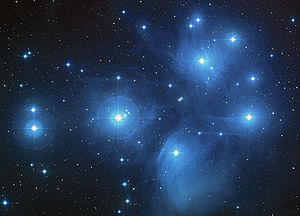
Earlier this week I was a guest on Start the Week, a live arts discussion programme on Radio 4, to talk about Decoding the Heavens. The other guests' books were far from my areas of expertise, but it was fascinating to hear them talk about their work. Stefan Aust, former editor-in-chief of the German magazine Der Spiegel, was there to discuss his book The Baader-Meinhof Complex (of which a film has just been released). It's about the Baader-Meinhof group of terrorists (also known as the Red Army Faction) who carried out a series of arson attacks, bombings and kidnappings in Germany in the 1960s and 1970s. I'm too young to remember their worst excesses, so I was really amazed by Aust's account of how a group of left-wing students ended up taking a path of such violence, and, in the end, suicide. Aust knew some of the group's key members personally, including the prominent journalist Ulrike Meinhof. She had abandoned her two young daughters to raised in a Palestinian military camp but Aust rescued them from Sicily just before they could be taken there and returned them to their father (something Meinhof then tried to have him killed for). I couldn't believe how modest Aust was for someone with such an incredible story. Both the book and the film are utterly compelling, not least because every scene is so meticulously researched and accurate.
Then there was art critic James Hall, who has written a book called The Sinister Side: How left-right symbolism shaped western art. He argues that modern art critics are missing out by not taking left-right symbolism into account - which way someone is looking for example, or where the light is coming from - he calls this the "lost key" to understanding western art. Again this was quite unfamiliar territory for me but I was interested to hear that much of this symbolism comes from the ancient Greeks. According to the philosopher Aristotle, for example, "right" was associated with characteristics such as even, male, straight, light, good and square. In contrast, "left" was associated with odd, female, bent, darkness, bad and oblong. The astronomer Ptolemy aligned the right side of the body with the east, and the rising Sun. Throughout most of art history, then, the left side was viewed pretty negatively, in most paintings of the crucifixion, for example, Christ looks to his right - and to God. The left side made a comeback in Renaissance times, though, when for artists such as Leonardo da Vinci (who was left-handed) the left side became associated with the heart, and therefore emotions and love. Hall's book will probably be easier going for those with some grounding in art history, but still, it's an intriguing theme.
The last guest was novelist Sara Maitland, talking about her latest work, called A Book of Silence. She says that most of her life has been very noisy, but for the last few years she has been seeking out more and more silence, from the Isle of Skye to the Sinai Desert. In the book she talks a lot about what it's like to spend long periods of time in isolation, and she discusses what "silence" is (for example is it defined by an absence of sound, or of language?) One of my favourite passages in the book is when she describes the enormous silence of the stars, experienced when she spent the night alone in her car in the wilds of southwest Scotland. I found it particularly interesting because one of the things that struck me when writing Decoding the Heavens was how intimately all ancient civilisations were connected with the heavens - for them the movements of the stars, Sun, Moon and planets were a central part of life. The full glory of the stars is something I have only experienced twice in my life - once on a boat off the Great Barrier Reef in Australia, and once on a remote Fijian island. To see the sky bursting with so much light - including shooting stars, and the shimmering Milky Way - is a mind-blowing, almost spiritual experience, and I can see why the ancients used to think of the cosmos as one huge, living thing.
It's such a shame that for most of us, that experience is no longer available. I live in London, where the streetlights are so bright I'm lucky to see any stars at all, even on a clear night. Listening to Maitland also made me wonder whether the silence she was after wasn't just to do with getting away from sound. Maybe part of what she - like many of us - is seeking is a connection with the natural world, a true sense of our place in the universe. That's something that the ancients took for granted, but nowadays it seems harder and harder to find.